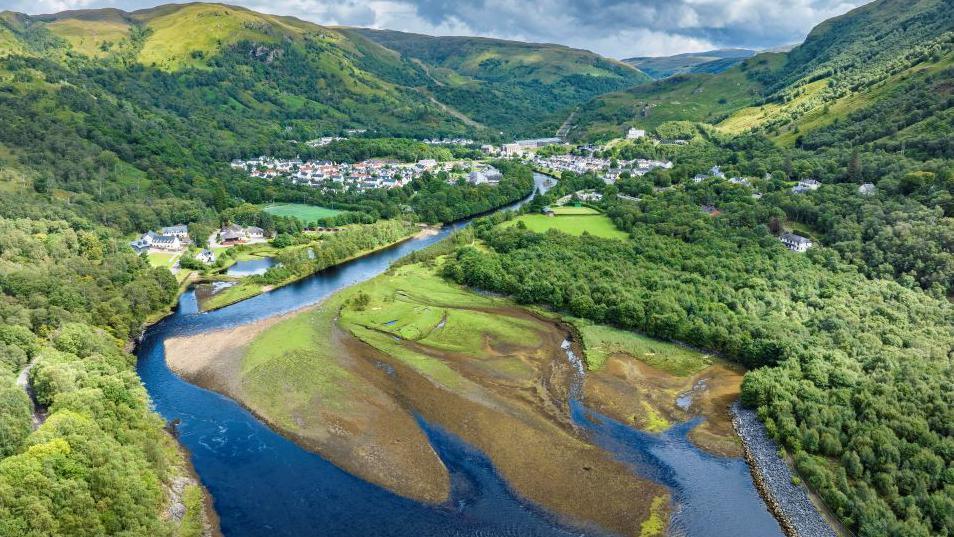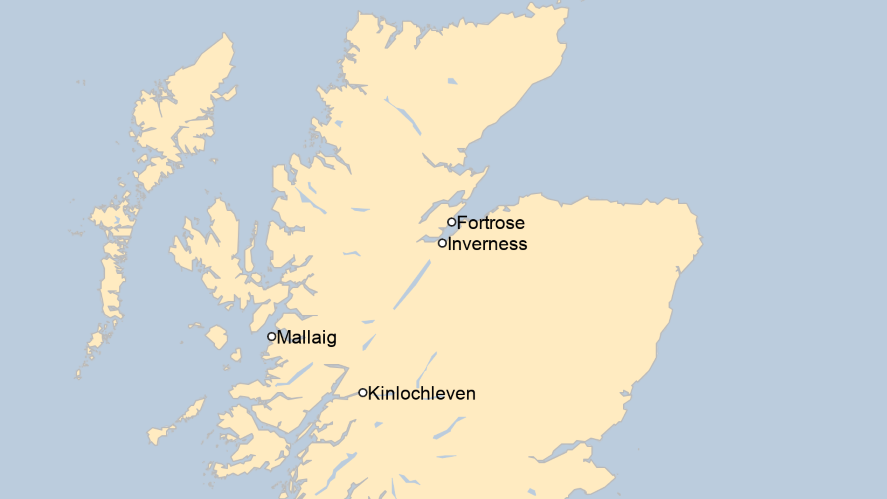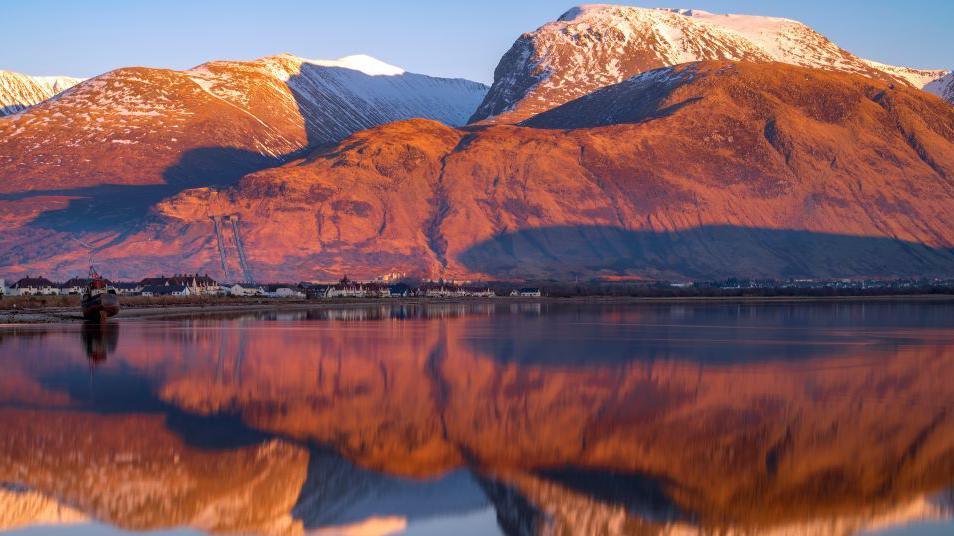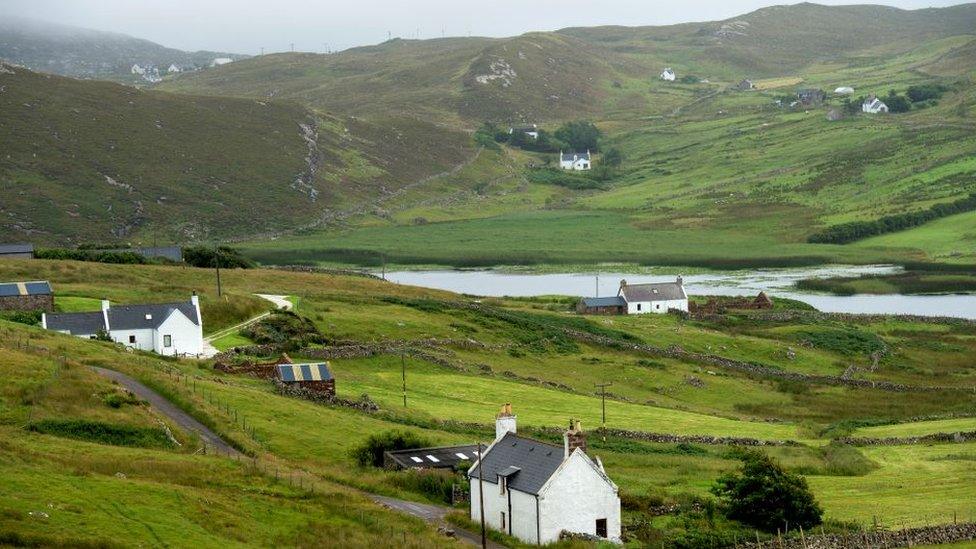Warning parts of Highlands being 'drained' of people

Kinlochleven is one of the Highland communities where population has been falling
- Published
Highland Council has warned there is a "significant risk" parts of its region are being "drained" of people.
It said latest population trends suggested growth around the Inner Moray Firth, but people "drifting away" from Caithness and the west Highlands.
The figures show that between 2003 and 2020 populations increased by 22% in Fortrose and Rosemarkie and 19% in Inverness, but fell by 18% in Mallaig and 17% in Kinlochleven.
Across the region older age groups are growing, partly because of the Highlands' attractiveness as a "retirement destination", according to a council report, external.
The trends have been identified in the 2022 Census.
Council officers said a slight growth in the Highland population - a 1.4% increase to 235,400 people - masked "significant regional disparities".
They warned there could be severe declines in the populations of Caithness and neighbouring Sutherland by 2040.
The report for Thursday's meeting of the full council said overall younger age groups were decreasing in numbers, while older groups were growing.
Between 2001 and 2021 the 0 to 15 age group in Highland dropped by 6.7%.
The number of people aged 75 and over increased by 60.6%.


The report raises concerns about people moving away from parts of the region, including the west Highlands
The report warned there were implications for public services, including health and the care sector.
It also said some of the communities most affected by the loss of population were those with a high prevalence of Gaelic medium communication.
Council officials said efforts being made to address depopulation and increase job opportunities.
They include the proposed Inverness and Cromarty Firth Green Freeport, and Fort William 2040 Masterplan - a project to regenerate the Lochaber town.
Officials also said ports at Kishorn, Wick and Scrabster were also busy with work related to offshore energy, decommissioning and fish farming.
The report has asked councillors to consider what other "radical solutions" could be explored.
Related topics
- Published2 August 2023
